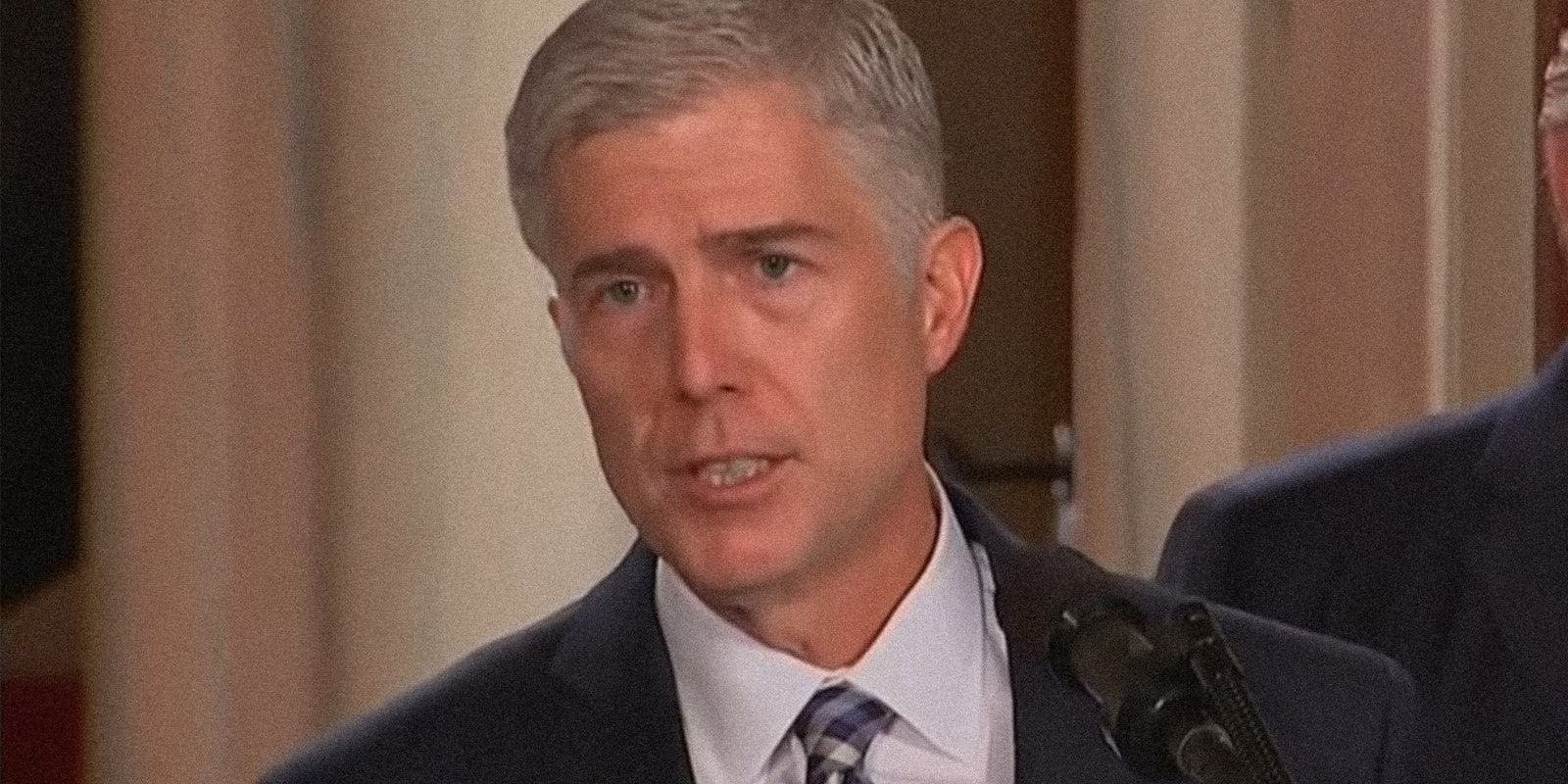A day after Senate Republicans went nuclear on the filibustering rules for Supreme Court nominees, Neil Gorsuch was confirmed to the highest court in the land on Friday.
The Senate voted 54-45 to elevate Gorsuch from the Tenth Circuit Court of Appeals to fill the Supreme Court associate justice spot left vacant after the death of Antonin Scalia last February.
https://twitter.com/DaniellaMicaela/status/850374876980314114
The leadup to the Gorsuch vote was contentious.
Last year, Senate Majority Leader Mitch McConnell (R-Ky.) refused to allow a vote on Barack Obama’s nominee, Merrick Garland, because Obama had entered the final year of his presidency. That wound, in part, led Senate Democrats to force a filibuster this week on Gorsuch. Since McConnell needed 60 votes to end the Democrats’ filibuster and because he only had 55 votes, McConnell changed the institution’s rules that prohibited filibusters on Supreme Court nominees.
In 2013, former Senate Majority Leader Harry Reid changed Senate rules to prohibit filibusters on lower-court nominees (though he kept in place the option to filibuster for the Supreme Court).
Now, the 49-year-old Gorsuch, who had previously called Donald Trump’s attacks on the judiciary “demoralizing,” could be a fixture on the court for the next few decades. He’ll likely be a boon for the conservative movement.
“The real appeal of [the] Gorsuch nomination is he’s likely to be the most effective conservative nominee in terms of winning over [swing vote] Anthony Kennedy and forging conservative decisions on the court,” Jeffrey Rosen, the CEO of the nonpartisan National Constitution Center, told Politico in January. “He’s unusual for his memorable writing style, the depth of his reading, and his willingness to rethink constitutional principles from the ground up. Like Justice Scalia, he sometimes reaches results that favor liberals when he thinks the history or text of the Constitution or the law require it, especially in areas like criminal law or the rights of religious minorities, but unlike Scalia he’s less willing to defer to regulations and might be more willing to second-guess Trump’s regulatory decision[s].”


